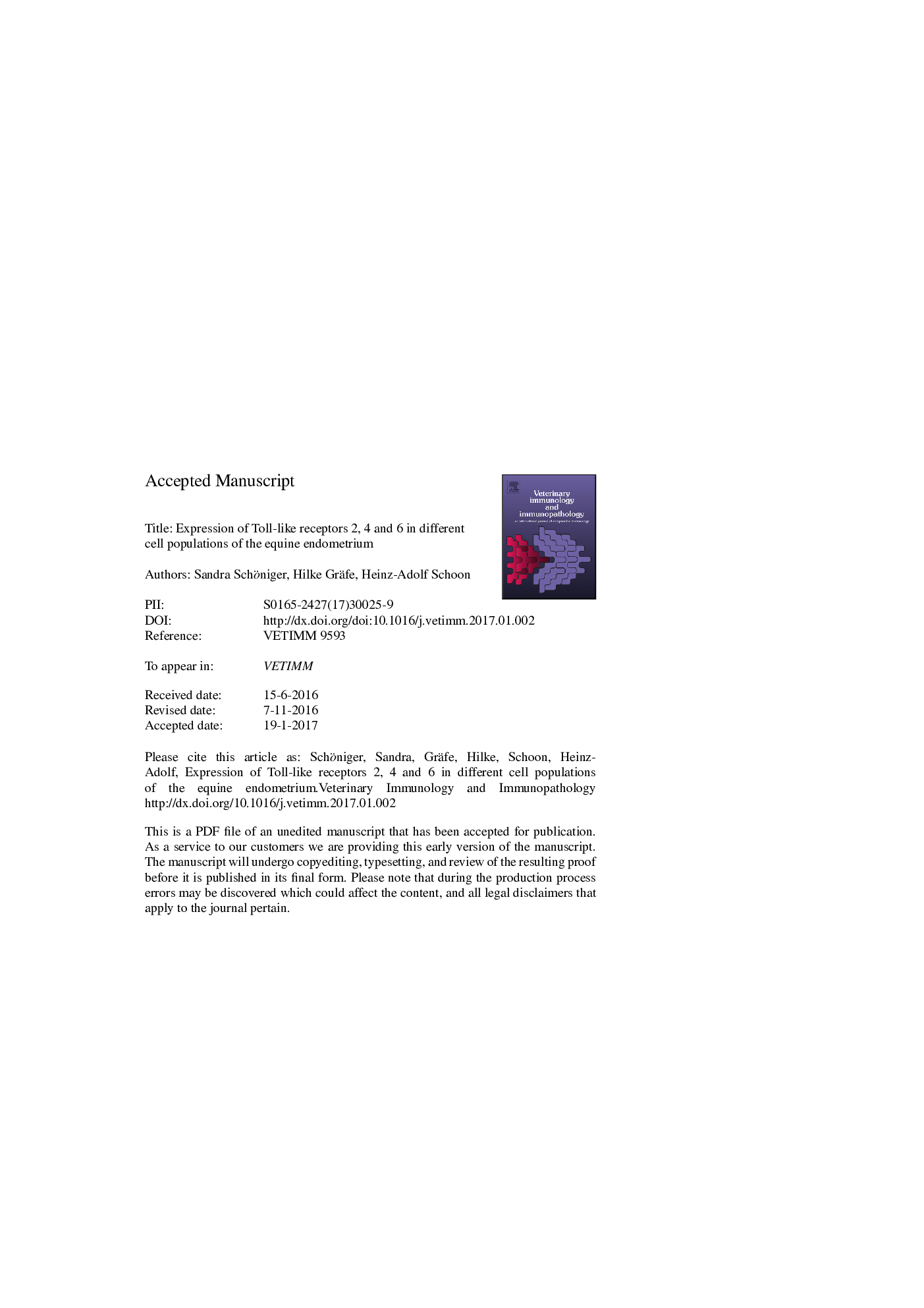| Article ID | Journal | Published Year | Pages | File Type |
|---|---|---|---|---|
| 5544778 | Veterinary Immunology and Immunopathology | 2017 | 26 Pages |
Abstract
Subfertility in mares is mainly caused by endometrial diseases. Alterations of Toll-like receptors (TLRs) are associated with endometrial disorders in women. This study investigated TLRs 2, 4 and 6 in the equine endometrium. Endometria of 21 mares were examined by histology, PCR and immunohistochemistry. Tissues from 2 mares were considered normal. The remaining showed endometritis, endometrosis and/or angiosclerosis. TLRs 2, 4 and 6 were expressed as transcripts and proteins in all endometria. Immunohistochemistry detected TLRs 2, 4 and 6 in mast cells, luminal and glandular epithelial cells, stromal cells, endothelia, vascular smooth muscle and/or inflammatory cells. Between examined endometria numbers of immunopositive epithelial cells varied considerably; TLRs were located in their cytoplasm and/or the nucleus. All other cell types displayed a cytoplasmic staining. Results indicate a complex and cell-type-specific modulation of TLRs 2, 4 and 6 in the equine endometrium. The lack of a detectable association between a particular disease and a distinct cellular expression may be explained by the often combined presence of several factors with a possible influence on TLRs. This study expands the basic knowledge on equine endometrial immunity and will assist to uncover if immunological alterations contribute to uterine diseases of mares.
Related Topics
Life Sciences
Agricultural and Biological Sciences
Animal Science and Zoology
Authors
Sandra Schöniger, Hilke Gräfe, Heinz-Adolf Schoon,
